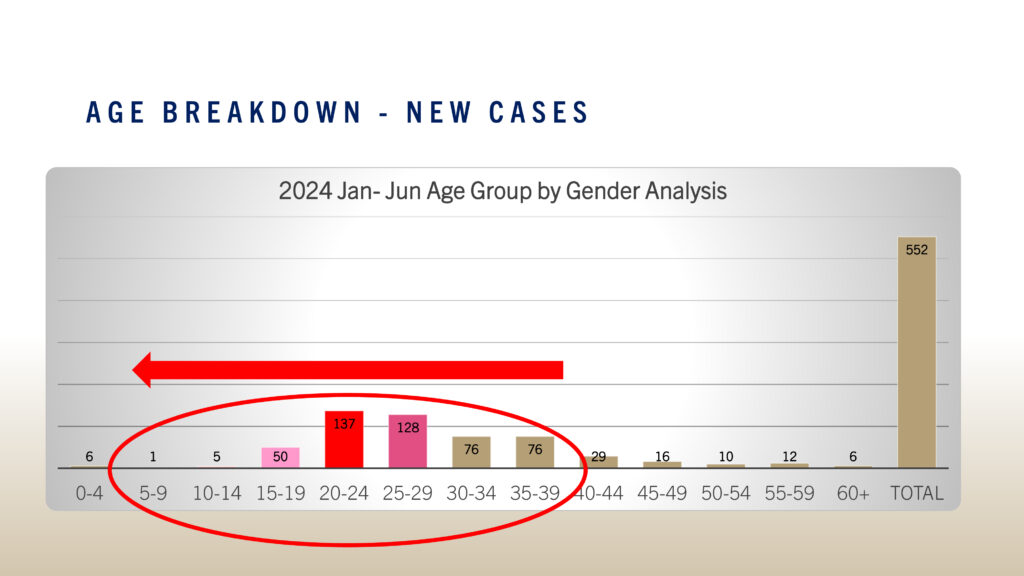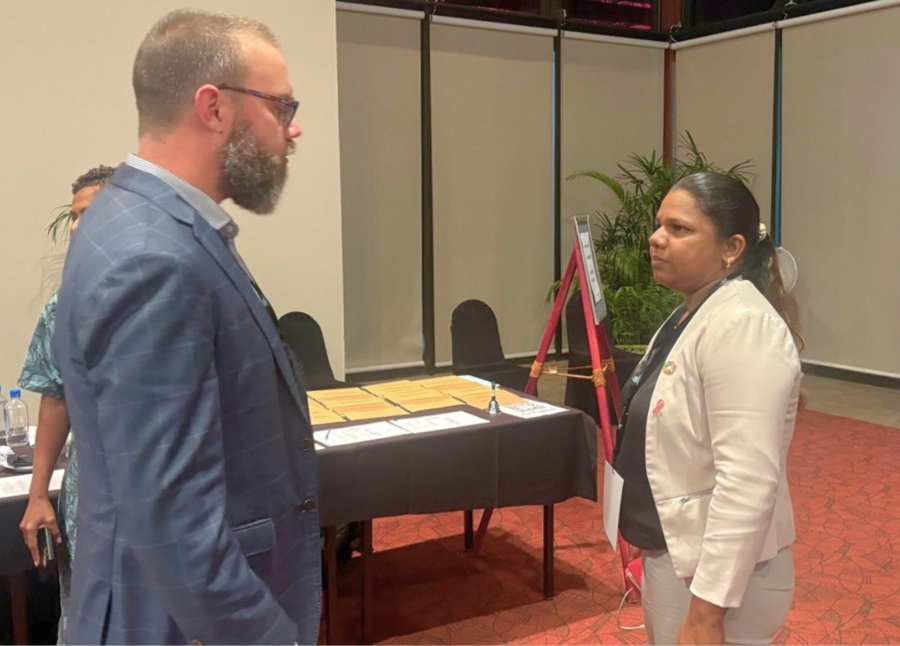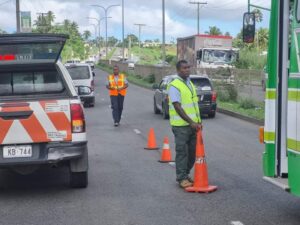Dr. Rachel Pillay, Fiji’s Head of Family Health at the Ministry of Health, has called on parents to take a more active role in educating their children about HIV prevention, particularly as the age of infection continues to drop.
Speaking at the 2024 ODPP Prosecution Conference at the Shangri-La on Yanuca Island Dr. Pillay highlighted that HIV prevention should start at home, with parents taking responsibility for providing accurate and open information.
“If I don’t take care of my child, if I don’t talk about good touch, bad touch, HIV, sexual practices, then who will? Don’t let Dr Google teach them. Don’t let Dr Google teach them. Dr Google can be very wrong sometimes as well. They want to hear it from our mouths. Our children want to hear it from our mouths. So if you’re a parent, or you’re becoming a parent, or if you’re an aunt, you’re an uncle. It’s our responsibility to step up and do this because if we don’t, we’re not going to make a difference.”
Dr Rachel Pillay
Her remarks come as new HIV cases, especially among younger populations, are on the rise, and the age of infection is becoming younger. In 2022, no cases were recorded in the 5-9 or 10-14 age groups. However, by 2023, the 10-14 age group had recorded 3 cases, and in the first half of 2024, the 10-14 age group recorded 5 new cases. The 0-4 age group also saw a slight increase, with six cases reported in the first half of 2024 – an increase from previous years when no infections were recorded in these younger age ranges.

In the first half of 2024 alone, Fiji recorded 552 new HIV cases, a sharp increase from 245 cases in 2022 and 415 in 2023. While the 20-29 age group continues to have the highest number of infections, the data shows a significant rise in cases among younger people. In 2022, the highest numbers of new infections occurred in the 25-29 (63 cases), 20-24 (43 cases), and 30-34 (43 cases) age groups. By 2023, the 20-24 age group saw a jump to 102 cases, while the 25-29 age group had 86 new cases. In 2024, the first half of the year saw an even bigger increase, with the 20-24 group reaching 137 new cases, and the 25-29 group recording 128.
Dr. Pillay pointed out that unprotected sex and intravenous drug use continue to be significant contributors to the rise in HIV cases. HIV is predominantly spread through sexual activity and injectable drug use, both of which teenagers may begin to explore due to natural hormonal changes. This makes early intervention crucial, according to Dr Pillary, who restated the role of parents, teachers, and communities in educating young people about safe sexual practices and health risks.
“I’ve got a seven-year old. I talked to her about that touch, good touch. Right now. I’ve started…Because if I don’t have that relationship with my child, I’m going to lose her in the prime age or the prime years of life.”
While Dr. Pillay acknowledged the progress made through government initiatives and public health campaigns, she stressed that more action is needed to address the growing HIV epidemic. She called for a collective response from all sectors of society to tackle the problem. She also highlighted that the HIV Act, last revised in 2011, needs to be reviewed and updated to address current challenges.
Dr. Pillay also called for expanded access to HIV testing, treatment, and prevention services, particularly for young people and at-risk groups.
Drawing on the lessons learned during the COVID-19 pandemic, Dr. Pillay who was also integral in Fiji’s COVID19 vaccination drive, called for a united response to the HIV epidemic. She urged Fijians to take collective action, just as they did in the fight against COVID-19.
“As a nation, we need to own this response – for drug issues, for HIV, it’s affecting our young, and unfortunately, too many are dying too young. Just own the response. Own the response. If you shy to talk about it, do something about it. Get someone to talk to someone about it. Let’s not be bystanders, but let’s be the people of change in the midst of everything that’s happening in the country. Be that one vessel, that one change, in the workplace, in the home, in the community, in the church, in the mosque, in the temple, wherever you go, be that one person of change.
“I saw what happened during COVID. COVID brought the country together, and in a matter of months, we made the difference. Why can’t we do this for HIV, which is killing a lot more people.”









